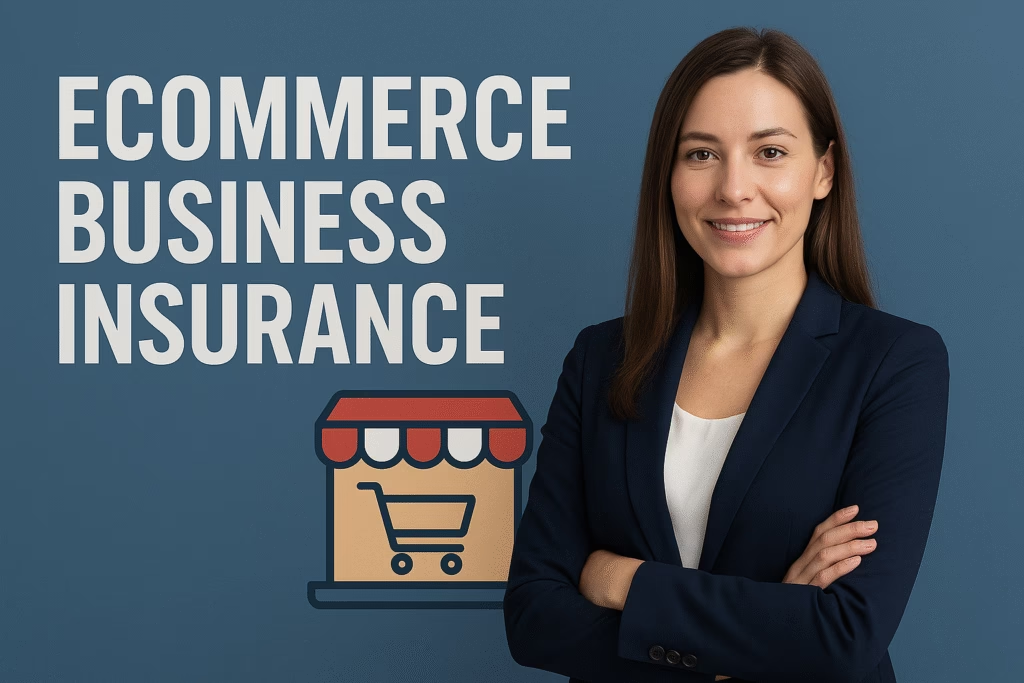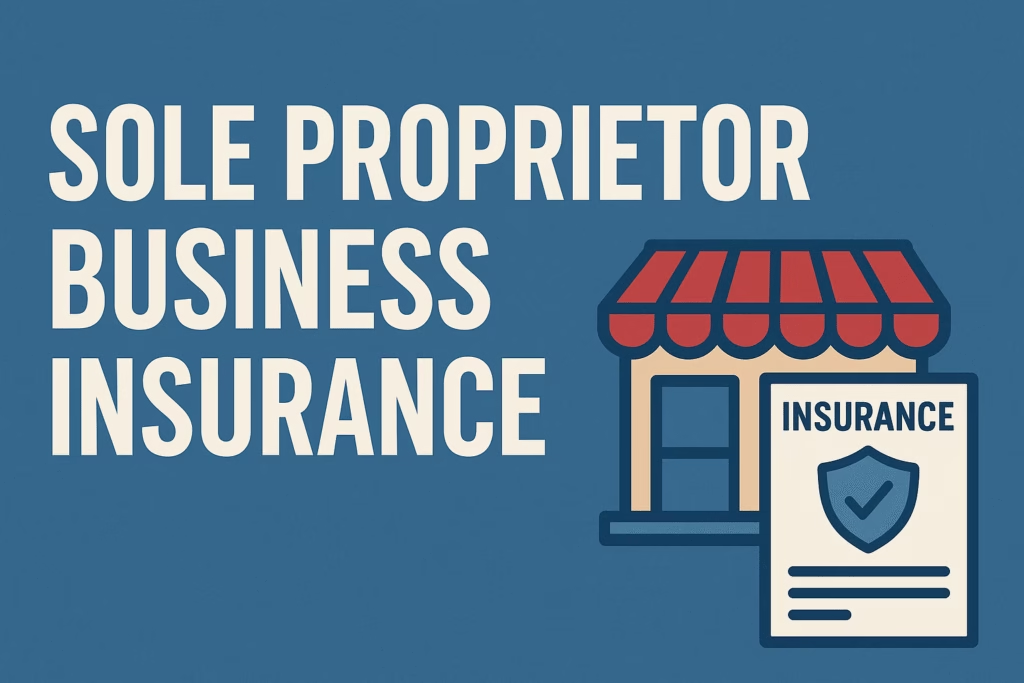Protect your online store with ecommerce business insurance. Discover 7 essential policies, real examples, costs, and expert tips to secure your online brand.
Table of Contents
Toggle✅ Google AI Overview Summary
What is ecommerce business insurance?
Ecommerce business insurance protects online stores from risks like product liability, cyber attacks, shipping damage, lawsuits, and customer disputes. Essential policies include general liability, product liability, cyber insurance, business interruption, and commercial property insurance. Costs typically range from $500 to $4,000/year, depending on business size and coverage needs.
Ecommerce Business Insurance: 7 Essential Smart Covers for Online Sellers
Running an online store feels exciting — until one unexpected problem hits.
Imagine a customer suing over a defective order, or a hacker stealing your buyer data.
Or worse… a lost shipment worth $15,000 and the courier refuses responsibility.
Most new online sellers never consider insurance — until they face a painful, expensive crisis.
But here’s the truth:
Ecommerce business insurance is not an expense — it’s a survival tool.
Ecommerce is booming. According to Statista, global ecommerce sales hit $6.3 trillion in 2024, and continue rising. With growth comes risk, fraud, cybercrime, lawsuits, and compliance obligations.
This guide explains everything you need to know about ecommerce business insurance, plus personal experiences, real-world examples, and proven tips to protect your online brand.
🎯 Who Needs Ecommerce Business Insurance?
You need ecommerce business insurance if you sell:
- Physical products online
- Digital products or software
- Dropshipping items
- Handmade or private-label products
- Print-on-demand goods
Whether you’re on Shopify, Amazon, Etsy, WooCommerce, eBay, or social commerce — insurance protects you from accidents, disputes, hacking, shipping damage, and lawsuits.
✅ Voice Search Answer
Do online businesses need insurance?
Yes. Online stores need ecommerce business insurance to protect against product liability, cyber attacks, shipping losses, customer disputes, and lawsuits.
😰 Real Challenges Ecommerce Brands Face
Challenge | Reality |
Product quality claims | Even one defective item can spark legal trouble |
Cyber attacks | 43% of cyberattacks target small businesses |
Chargebacks & fraud | $130 billion global ecommerce fraud losses projected by 2030 |
Shipping damage | Couriers don’t cover most losses |
Platform requirements | Amazon sellers must carry liability insurance |
I’ve seen sellers lose everything because they didn’t have the right policy.
One of my friends selling baby products got hit with a $27,000 legal claim — and had to shut down because he had no coverage.
⭐ Benefits of Ecommerce Business Insurance
- Covers legal claims and lawsuits
- Protects against cyber attacks and data theft
- Secures inventory during storage and shipping
- Builds trust with customers and marketplaces
- Keeps your business running during disasters
When I scaled my first Amazon store, insurance gave me the confidence to take bigger product risks — because I knew my business was protected.
🛡️ 7 Must-Have Ecommerce Business Insurance Covers
1. General Liability Insurance
Protects against customer injuries, property damage, and advertising liability.
Example: Someone claims your product damaged their home furniture.
✅ Recommended limit: $1M – $2M
💰 Typical cost: $500–$1,500/year
2. Product Liability Insurance
Covers claims related to defective or harmful products.
Example: A skincare product causes a reaction.
💡 Pro Tip: Amazon requires sellers earning $10,000/month+ to carry it.
3. Cyber Liability Insurance
Protects against cyber attacks, ransomware, and customer data breaches.
Data:
IBM report: Average cyber breach cost = $4.45 Million in 2024
Source: IBM Cost of Data Breach Report
💰 Starting cost: $300–$1,200/year
4. Business Interruption Insurance
Covers income loss if your online store shuts down due to disaster or cyber attack.
I had a Shopify outage once during Black Friday. Insurance saved me nearly $900 in lost revenue.
5. Commercial Property Insurance
Covers physical assets like inventory, office equipment, and warehouse stock.
Even if you run from home, inventory is vulnerable to:
- Fire
- Theft
- Flood
6. Cargo / Shipping Insurance
Covers damage or loss during shipping.
Dropshippers: This is crucial — carriers rarely cover damaged orders.
📝 Tip: Etsy & Shopify sellers often combine cargo coverage with liability.
7. Workers’ Compensation Insurance
Required if you have employees — protects against workplace injury claims.
Even VA teams may require coverage depending on state regulations.
📦 Ecommerce Insurance for Dropshipping
Dropshippers often think they don’t need insurance.
Wrong.
You are still responsible for product safety and customer claims — even if suppliers ship items.
📊 Cost of Ecommerce Business Insurance
Business Size | Approx Cost |
Small Shopify seller | $500–$800/year |
Amazon brand | $1,200–$2,500/year |
Warehouse operation | $2,500–$4,000/year |
Prices vary by:
- Category (beauty > electronics > clothing)
- Revenue
- Claims history
🎥 Recommended Videos
🤝 Personal Note From Experience
When I began selling online, I ignored insurance thinking it’s only for big brands.
Then a shipment worth ₹2,10,000 got damaged — and neither courier nor supplier took responsibility.
That painful lesson taught me:
Insure early. Scale safely. Sleep peacefully.
🧠 FAQs
What is ecommerce business insurance?
Ecommerce business insurance protects online sellers from lawsuits, cyber threats, shipping damage, and financial losses.
Do I really need ecommerce business insurance?
Yes — without it, one legal claim or cyber attack can bankrupt a small business.
How much does ecommerce business insurance cost?
Usually $500–$4,000/year depending on business size and products.
Does Amazon require insurance?
Yes, if you generate $10,000/month or more.
What insurance do dropshippers need?
General liability, product liability, cyber insurance, and cargo coverage.
Is ecommerce insurance tax deductible?
Yes. Business insurance premiums are deductible.
✅ Key Takeaways
- Ecommerce business insurance prevents catastrophic losses
- Must-have covers: liability, cyber, cargo, property, interruption
- Essential for Shopify, Amazon, Etsy, and WooCommerce sellers
- Costs are reasonable — risks are expensive
📣 Conclusion
Ecommerce business insurance isn’t optional anymore — it’s essential.
Protect your inventory, your income, and your brand reputation.
The right coverage means peace of mind, trust, and long-term success.
📖 To learn how small businesses turn into million-dollar brands, check out: How Small Businesses Became Million-Dollar Brands.
Happy business building! 🚀
Explore More on Business!
Now that you’ve discovered this, why not dive deeper into more Business insights?
Check out these must-read blogs:
✅ How to Start ecommerce Business : 7 Powerful Free Tips
✅ Unlock 5X Growth with Shopyfiy Partners
✅ 10 Proven Ways Small Business Consulting Firms Drive Success
Start Your Website with Hostinger 🚀
Lightning-fast hosting + free domain & SSL. Perfect for entrepreneurs & bloggers!
Save up to 80% — Limited Deal 🔥One-click WordPress — 24/7 Support ✅


